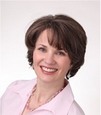It's not a pleasant subject, which partly explains why so many people put off creating an estate plan. On top of that, estate planning requires the skill of advanced planning, something many of my clients aren't particularly good at (at least not until after they work with me!). If you don't already have a will and other relevant documents that will be helpful if you're incapacitated, or after your eventual death , I strongly encourage you to get those things taken care of. You'll make things a lot easier for your loved ones and you'll make sure you assets are distributed as you'd like.
Besides creating an estate plan, you can make it easy for the people you leave in charge to find the documents they'll need if you become seriously ill or injured, or pass away. Consider giving them the actual information noted below (copies or originals depending on what's appropriate), or an index telling them where to find this information. Completing this list may seem overwhelming, so just do a little bit at a time. Planning for the worst will help assure the best outcome in a bad situation.Medical Information The name and phone numbers of all of your doctors; the prescriptions, medications and supplements you're taking; history of surgeries; allergies; medical history, etc. This information can be lifesaving if you're having a medical emergency.
Financial Information Contact information of your financial planner, accountant and other financial advisors; bank account information - contact information for each bank, account numbers, etc.; investment information - names and contact information for each investment, account numbers, etc.; mortgage information; information about other loans; credit card information; pension and other retirement account information; tax records; bill payment information (especially which bills are paid via automatic withdrawal from your bank account); etc.
Property Information Deeds, titles etc. for home(s), boat, car, camper, cemetery plot, etc.; location of any property or valuables you own.
Insurance Information Contact information of insurance agent; policy numbers; location of policies for life insurance , homeowner's insurance , renter's insurance, auto insurance, health insurance, disability insurance, long-term care insurance, etc.
Personal Information Location of birth certificate, adoption papers, citizenship papers, marriage license, divorce decree, military discharge papers, social security card, etc.; location of safe or safe deposit box and key, combination etc.; names and contact information of friends and family members; how to care for pets ; etc.
Legal Information Contact information of attorney; location of legal documents not already noted above, including will, powers of attorney, contracts and business agreements.
Computer information Passwords and email accounts (especially if you have more than one); social media accounts (you might also want to indicate how to "dispose" of these accounts - here are links to two articles on the subject: Saving for Someday and The New York Times.
Business information Contact information of vendors, clients, business advisors, colleagues, etc.; financial information; succession plan; professional memberships and related online profiles; etc.
Only you know what other information might be helpful to someone handling matters in the event of your demise, so be sure to add it to this list as appropriate. I'd love to hear about it, too.
Internationally known professional organizer, author, and speaker Sue Becker is the founder and owner of From Piles to Smiles®. She enjoys helping people from around the world live better lives by creating customized systems to overcome their overwhelming paperwork, clutter, and schedules. She specializes in helping people who are chronically disorganized - those for whom disorganization has been a lifelong struggle that negatively impacts every aspect of their life, especially people with AD/HD. Her hands-on help, as well as her presentations, have helped thousands of individuals create substantial change in their lives.
Sue is Illinois’ first Certified Professional Organizer in Chronic Disorganization. She co-authored the book Conversations on Success, and has appeared as an organizational expert on NBC News and the national TV show, Starting Over. A CPA, Sue has an MBA from Northwestern University’s Kellogg Graduate School of Management.


